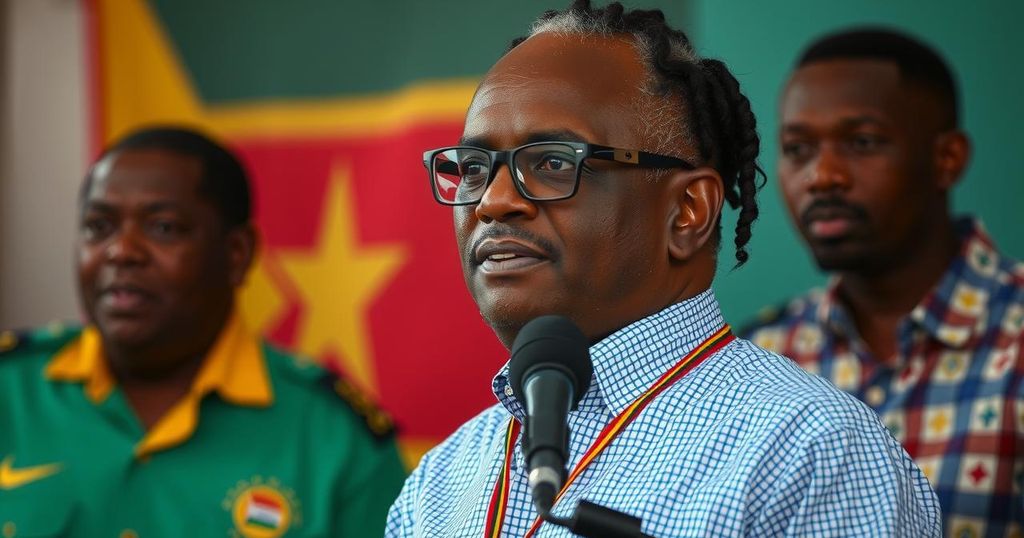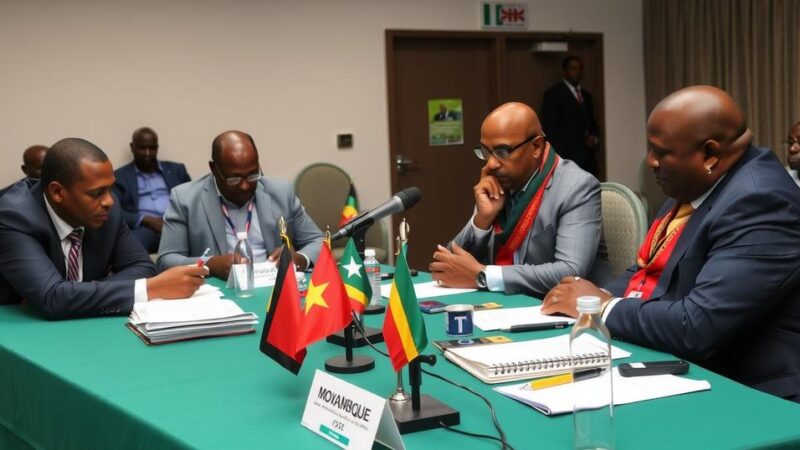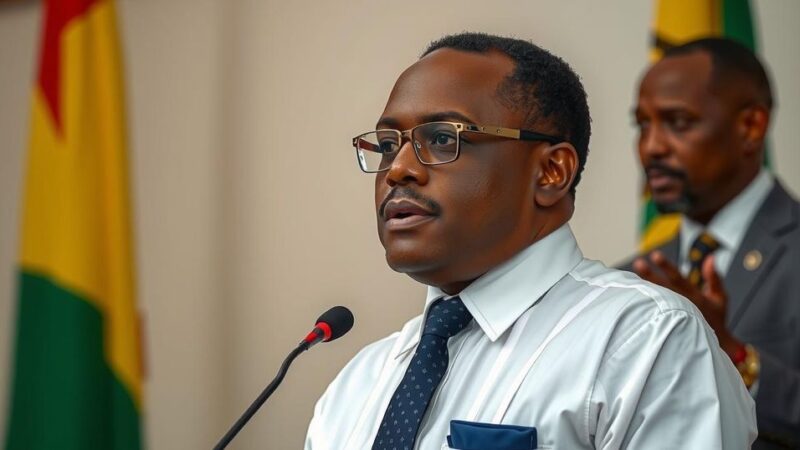Mozambique is in turmoil ahead of a crucial constitutional ruling regarding disputed election results. Following claims of electoral fraud and unrest, opposition candidate Venâncio Mondlane has threatened chaos if the ruling party’s initial majority is upheld. Security forces have violently retaliated against protesters, leading to numerous fatalities, while both sides brace for potential fallout from the council’s decision.
Mozambique remains tense as it awaits a pivotal constitutional ruling regarding the October elections, which have sparked widespread civil unrest due to allegations of electoral fraud. President Filipe Nyusi’s ruling party, Frelimo, was declared to have won a significant majority, with 70.7% of the votes going to its candidate Daniel Chapo, while opposition candidate Venâncio Mondlane received 20.3%. In the lead-up to the ruling, Mondlane has warned of potential chaos should the initial results be confirmed, asserting that he truly won the election.
The Podemos party, aligned with Mondlane, claims that election results inaccurately reflect their representation in parliament, stating they should hold 138 seats instead of the 31 reported by the election commission. Prominent allegations of irregularities, including ballot-stuffing observed by the Catholic bishops and the European Union monitors, have fueled suspicions surrounding the legitimacy of the election outcomes. The unrest has significantly impacted the economy, with protests leading to border closures and a near halt in trade with neighboring South Africa.
In response to growing violence among protesters, including attacks on Frelimo properties, security forces have implemented a heavy-handed crackdown, resulting in numerous fatalities and injuries. Human Rights Watch reports that approximately 130 individuals have been killed during the protests. As the constitutional council prepares to deliver its decision, Mondlane has urged the public to pray for judiciary integrity and for justice to prevail, emphasizing that the electoral truth must not be misrepresented.
While some analysts concede that electoral manipulation likely occurred, there remains uncertainty whether Mondlane’s claims of victory are substantiated. Despite outgoing President Nyusi asserting a commitment to step down as scheduled, tensions persist as both sides brace for the impending ruling, with concerns over potential violent repercussions should the discontent continue to escalate.
Potential ramifications hinge on the council’s announcement, as Mozambicans are poised to react based on the decision rendered, with observers remarking on the critical role the judiciary plays in stabilizing the deeply fractured political landscape.
In October, Mozambique held elections that have since been deemed controversial due to allegations of rigging and manipulation of the electoral process. The opposition, particularly Venâncio Mondlane of the Podemos party, has contested the announced results, leading to widespread protests and violence. Security forces have responded severely to dissent, resulting in numerous casualties and significant unrest within the nation. This situation is compounded by a history of political tensions between the ruling Frelimo party and various opposition factions, creating an environment of distrust and volatility leading up to the constitutional council’s ruling.
In summary, Mozambique faces a critical juncture as it anticipates a ruling on contested election results that have already instigated considerable unrest and violence. The constitutional council’s decision will be crucial not only in determining the legitimate victor of the elections but also in shaping the political landscape and societal stability in Mozambique moving forward. With both sides on alert, the outcome of this ruling carries significant implications for peace and governance in the nation.
Original Source: www.theguardian.com







